The overarching mood of Lucid's Q4 2021 earnings call was one of calm, leading listeners to come away with the sense that Lucid's business plan is proceeding as designed despite teething issues experienced as a new manufacturer. While certain parts proved troublesome to find, the core components (batteries, motors, semiconductor chips) are not in short supply.
Production Targets Cut
Lucid's original target for 2022 production was 20,000 Air sedans, but the company has reduced this to somewhere from 12,000-14,000 units citing the supply chain constraints affecting the entire automotive industry as a result of the pandemic. Interestingly, semiconductor chips aren't the parts holding Lucid back with CFO Sherry House mentioning that she recently approved a purchase order for the vital components with a 72-week lead time. Being a relatively low-volume manufacturer (for now) and carefully planning for the future should mitigate production delays as much as possible.
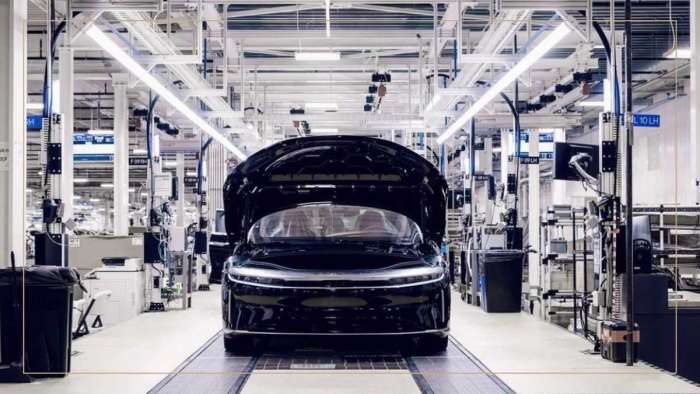
"Fit and Finish" Parts
The real issue, and likely the cause of the delivery delays that Dream Edition buyers experienced in December and January, is centered on carpets and glass. CEO Peter Rawlinson mentioned these parts during the call, stating that they weren't up to Lucid's quality standards and leading the company to partner with new suppliers in some cases. This fits with the reports seen in Lucid owner's forums of at least one car with a slight waviness visible through its rear windshield, possibly due to defects in the lamination process.
Reservation Numbers
Lucid Air reservation figures were revealed in the run-up to the call, swelling healthily from the 17,000 reported in Q3 to more than 25,000 as of February 28th. This represents a potential $2.4 billion in sales for Lucid, and shows that all the positive press received by the Air is working wonders for public opinion. Rawlinson also mentioned a strong demand for a vehicle with the performance of the Dream Edition, and said the company was exploring ways of making that happen. This will be tricky to figure out, as the exclusivity of the 520-car Dream Edition production run was a major selling point for the people willing to drop $170,000 on a car from an unknown automaker. Obviously future further-developed Lucids will eclipse the Dream Edition's range and performance, but releasing more 520-mile, 1111 horsepower EVs too soon after the flagship may rub buyers the wrong way.
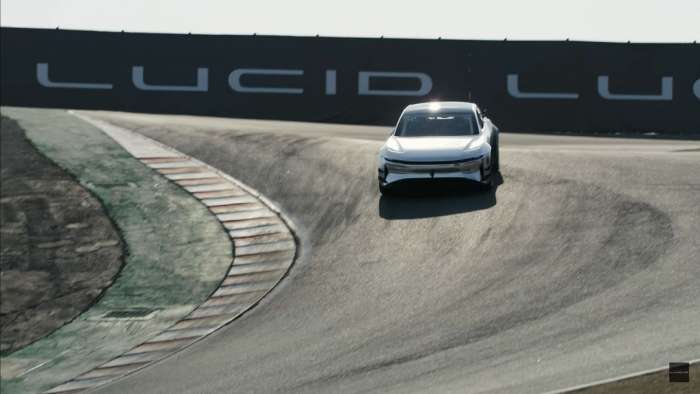
Delivery Figures 2021
In total, Lucid delivered 125 cars to customers by December 31st 2021. As of the call, 300 Dream Editions were in customer hands with 400 Airs built in total. Some of the remaining hundred are customer cars waiting on delivery and others are demonstrator/crash test vehicles. Lucid Motors generated $26.4 million in revenue in Q4, with $21.3 million coming from Dream Edition sales and most of the rest from selling batteries to the Formula E racing series. Lucid ended 2021 with $6.2 billion cash on hand.
Cutting production targets for 2022 serves to manage the expectations of customers and investors, but it also shows Lucid's desire to build the best vehicles it can rather than pushing thousands of examples with shoddy assembly out the door. It exists in a time where electrification is proven and inevitable, so it can afford to take its time as long as it stays at the forefront in its technology. Lucid has its sights set further down the road, and officially announced its second production facility will be built in Saudi Arabia by 2026 ahead of the call. A reduced production target can be seen as a commitment to quality and a considered approach to running an electric vehicle manufacturer.
Do you think Lucid's approach is the right one? Let me know in the comments below, and thanks for reading.
Images by Lucid Motors licensed by CC BY 2.0.
James Walker is an automotive journalist at Torque News focusing on Lucid Motors. If it's got wheels he's interested, and he's looking forward to seeing what kind of cars the EV revolution brings us. Whether it's fast, slow, new, or old, James wants to have a look around it and share it in print and on video, ideally with some twisty roads involved. You can connect with James on Twitter, Instagram, and LinkedIn.
Set as google preferred source







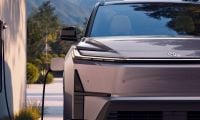
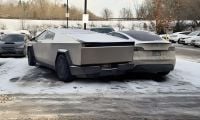
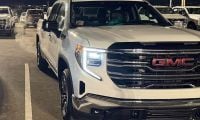
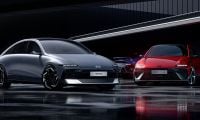
Comments
Our longest typical road trip
Permalink
Our longest typical road trip is 1100 miles to Tucson in two days. We could easily do Los Angeles - about 1700 miles - in two days. Consequently the magic number for me is a 1,000 mile range.
I own only a bit over 200 shares, but may increase this year to over 1000 total. My question is; What do I have to look forward to as far as support along the I40 and I 10 corridors after 2024?
Well, that infrastructure
Permalink
In reply to Our longest typical road trip by Robert S. Padawer (not verified)
Well, that infrastructure bill from a while back promised $5 billion to build chargers mostly along interstates. Looking at a map of current chargers along those routes, plus more coming in the future, and the Lucid's 500-mile range, I'd say you should be pretty well catered to and those journeys should be a piece of cake, especially as more and more fast-chargers roll out. Full steam (volts?) ahead!